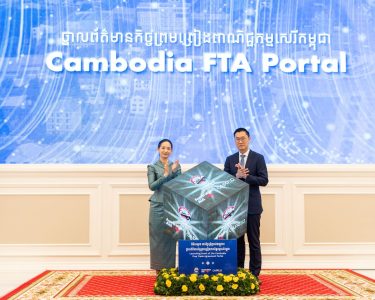Myanmar Investment Review
Myanmar has unveiled a broad range of updates to its tax system in the newly released DFDL Myanmar Tax Guide 2025, offering fresh insights for companies, investors, and individuals navigating one of Southeast Asia’s most complex fiscal landscapes. The guide breaks down the current tax regime—covering everything from corporate and personal tax to capital gains, commercial tax, and incentives—while highlighting a series of policy changes introduced this year.
The 2025 guide arrives at a critical time, as Myanmar continues to encourage investment amid ongoing economic uncertainty. Here are some of the most interesting and practical developments for businesses operating in or entering the market.
Lower Tax Rates for Listed Companies
One standout change is the reduced corporate income tax (CIT) rate of 17% for companies listed on the Yangon Stock Exchange, compared to the standard 22% rate for most other businesses. Oil and gas companies still face a higher rate of 25%.
Notably, small and mid-sized enterprises (SMEs) that earn under MMK 15 million per year for three consecutive years can benefit from a three-year tax exemption, supporting early-stage companies during their startup phase.
Explore CIT rates and exemptions in Myanmar
Big Shift: Pay Taxes in the Currency You Earn
From April 1, 2024, businesses and individuals must pay income tax in the same currency the income was earned—whether in Myanmar Kyats or a foreign currency. This marks a big shift from the previous system, where taxpayers often had to convert income into MMK for tax purposes, creating administrative headaches and exposure to currency fluctuations.
This update applies to corporate tax, personal income tax, capital gains tax, and withholding tax, but not to commercial tax, stamp duty, or specific goods tax, which remain payable in MMK.

More Generous Tax Incentives Under the MIC
Foreign investors approved by the Myanmar Investment Commission (MIC) can now apply for generous tax holidays based on their investment zone:
- 7 years in less developed areas (Zone 1)
- 5 years in moderately developed areas (Zone 2)
- 3 years in developed areas (Zone 3)
The guide also highlights new incentives for sectors like electric vehicles, renewable energy, and maintenance services, introduced under recent MIC notifications.
Another important change: 100% export-oriented status is no longer required to access certain customs and import tax benefits, broadening the scope for qualifying businesses.
Read more about MIC tax holidays and incentives
Special Economic Zones Still Offer Robust Benefits
Companies operating in Special Economic Zones (SEZs) such as Thilawa continue to enjoy longer tax holidays, customs exemptions, and zero commercial tax. For example, Free Zone investors receive:
- 7-year income tax holiday
- Additional 5-year 50% tax reduction
- Further 5-year 50% tax reduction on reinvested profits
Meanwhile, Promotion Zone investors—focused on the domestic market—get a 5-year holiday and similar extensions.

Digital Tax Payments and Stricter Enforcement
As Myanmar modernizes its tax administration, businesses must now register, file, and pay taxes online using new government platforms. The Tax Payment Hub Portal, launched in September 2024, allows payments via mobile apps and local bank systems.
Penalties have also become steeper:
- Late filings face up to 5% + 1% per month
- Incorrect reporting can lead to fines of up to 100% of unpaid tax
- In extreme cases, imprisonment of up to seven years is possible for tax evasion
Taxpayers must also retain records for 7 years, and audits can be initiated up to 6 years after a return is filed—or 12 years in fraud cases.
Takeaways for Investors and Operators
The DFDL Myanmar Tax Guide 2025 serves as a vital resource for both new entrants and established companies. While tax compliance is becoming more stringent, the guide highlights a number of strategic opportunities—especially for firms leveraging tax incentives, operating in SEZs, or investing in priority sectors like infrastructure and clean energy.
To navigate these complexities, companies are advised to consult with qualified legal and tax professionals and stay up-to-date with evolving interpretations from Myanmar’s Internal Revenue Department (IRD).
📘 Access the full guide: DFDL Myanmar Tax Guide 2025






